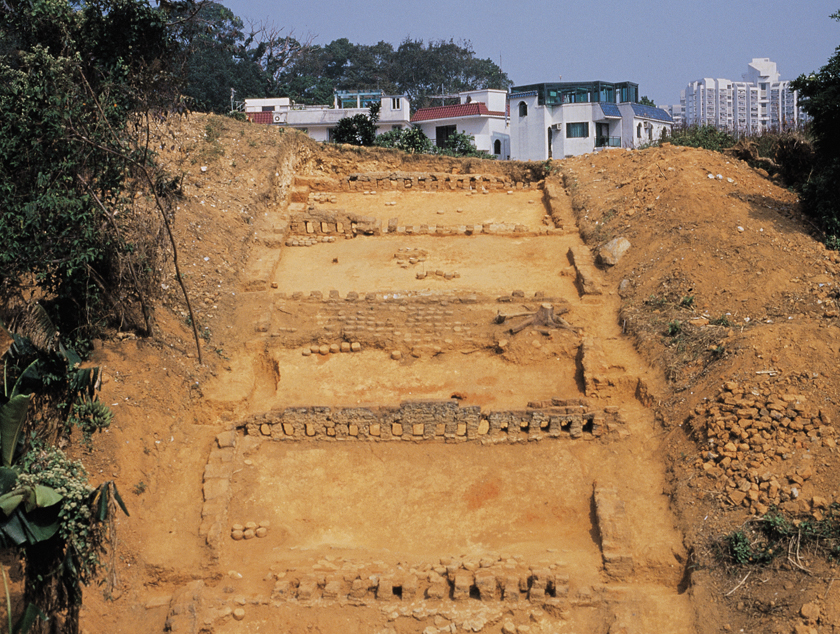
Located to the southwest of Tai Po Market, the village of Wun Yiu is surrounded by densely wooded hills replete with abundant water resources. More importantly, the hills are rich in kaolin deposits, which made the area an ideal site for manufacturing porcelain ware, and historical documents record that the Man and Tse clans had already developed a blue-and-white porcelain manufacturing industry in Wun Yiu during the Ming dynasty (AD 1368 – 1644).
In 1662, the Qing court issued an imperial edict ordering the evacuation of the coastal areas and forcing the people living there to move 50 li inland (one li is approximately 500 metres). With the edict depopulating the region and uprooting local communities, the porcelain industry at Wun Yiu came to an abrupt halt. After the edict was eventually rescinded in 1669, the local residents gradually returned, but the kilns at Wun Yiu remained unattended.
After the Evacuation Edict was lifted, the Ma clan, a Hakka group originating from Changle County (the present-day Wuhua county) in Guangdong Province, settled in Tai Po in 1674. They purchased the kilns in Wun Yiu from the Man clan, and the porcelain industry prospered under the Ma clan's management during the Qing dynasty (AD 1644 – 1911), with its products exported as far as the Jiangmen area in Guangdong. The industry declined in the early 20th century, however, as a result of strong competition from inexpensive porcelain ware produced by other coastal kilns in Guangdong, and the kilns at Wun Yiu finally ceased operations in 1932.
Two archaeological investigations were conducted at the Wun Yiu kiln site, one in 1995 and the other in 1999, which uncovered well-preserved structures including clay quarrying pits, water mills, an animal-driven grinder, clay-soaking tanks, paste-making workshops and dragon kilns. Illustrating the complete process of porcelain production, these finds are a very rare archaeological discovery in terms of the history of porcelain production in China. As the Wun Yiu kiln site represents such an important part of Hong Kong's archaeological heritage, it is now safely protected and also the subject of studies aiming to enhance its educational and tourism value.